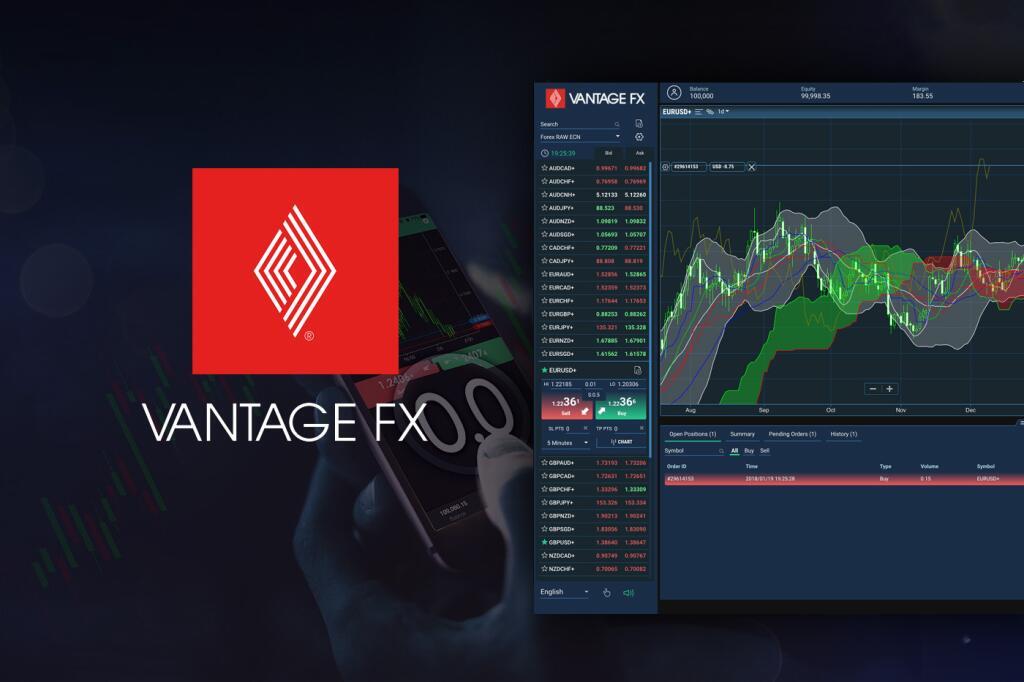
They typically leverage up without considering that they might just lose their $500 much faster with more leverage. Institutional investors are sometimes called market makers because they can have such huge influence in the financial https://investmentsanalysis.info/ industry. This is because of the large amounts they trade and how involved they are in important market events. These big institutions move in and out of positions in very large blocks so they cannot buy or sell holdings gracefully.
Institutional Trading Platform DMALINK Tops £425,000 Funding Goal On Seedrs Crowdfund Insider – Crowdfund Insider
Institutional Trading Platform DMALINK Tops £425,000 Funding Goal On Seedrs Crowdfund Insider.
Posted: Tue, 22 Aug 2023 21:29:42 GMT [source]
They use their expertise to manage their portfolio in such a way that they are mostly successful in their trades. Some focus on fundamental analysis while others rely on technical analysis or quantitative models. This allows other investors to enter or exit positions more easily, which contributes to a more efficient market.
Hence, institutional investors strategise to invest in exotic instruments in order to diversify the portfolio significantly. Scholars, including us, are pursuing many avenues of research on insider trading, such as how insider trading restrictions are determined and how insider trades inform markets when news is limited. We’ve recently conducted research on how insider trades by colleagues at the same company tend to cluster together, and we are currently looking at how innovation affects insider trading. SmartAsset Advisors, LLC (“SmartAsset”), a wholly owned subsidiary of Financial Insight Technology, is registered with the U.S. SmartAsset does not review the ongoing performance of any RIA/IAR, participate in the management of any user’s account by an RIA/IAR or provide advice regarding specific investments. One of the limitations of hypothetical performance results is that they are generally prepared with the benefit of hindsight.
This enables you to optimize each strategy as well as testing different markets, timeframes, and quantities. Event-driven trading involves buying and selling securities based on the occurrence of specific events, such as mergers and acquisitions, earnings announcements, and regulatory changes. Institutional traders use a variety of analysis techniques to identify these events and their potential impact on securities prices. CFDs are complex instruments and come with a high risk of losing money rapidly due to leverage. You should consider whether you can afford to take the high risk of losing your money. Forex, Futures, Options and such Derivatives are highly leveraged and carry a large amount of risk and is not suitable for all investors.
Forex Categories
Because substantial quantities of cash are required to access these funds, their clients are companies, pension funds, or investment funds. Hedge funds provide larger profits, but they also come with increased risks and expenses. Institutional trading strategies can be complex and sophisticated, involving a combination of quantitative and qualitative analysis techniques. The most common institutional trading strategies include momentum trading, value investing, statistical arbitrage, event-driven trading, and high-frequency trading. While these strategies can be highly effective, they also come with significant risks and require careful management to ensure success.
Institutional investors hold significant stake in Whitbread By … – Investing.com Canada
Institutional investors hold significant stake in Whitbread By ….
Posted: Wed, 06 Sep 2023 06:54:12 GMT [source]
In fact, institutional investors today make up more than 90% of all stock trading activity. Institutional investors are large entities such as pension funds, hedge funds, and insurance companies that hire finance and investment professionals to manage large sums of money on behalf of their clients or members. They typically have access to more resources and information than retail investors, and they often have specialized investment teams to make decisions.
The Insider’s Guide to Institutional Trading: Institutional Trader vs Retail Trader (Updated
The manner in which an institutional investor allocates capital that’s to be invested depends on the goals of the companies or organizations it represents. Some widely known types of institutional investors include pension funds, banks, mutual funds, hedge funds, endowments, and insurance companies. Forex, also known as foreign exchange or FX, is a decentralized global market where currencies are traded 24/7. The forex market is the largest financial market in the world, with an average daily trading volume of over $6 trillion. Institutional trading forex refers to the buying and selling of currencies by large financial institutions such as banks, hedge funds, and pension funds. In this article, we’ll explore institutional trading forex in detail, including what it is, how it works, and the key players involved.

There are several different types of institutional investors, and you may be wondering what sets them apart from the average investor. Below is a quick review on how you can access insider and institutional ownership information to make well-informed investment decisions. This is why institutional trading can have a major impact on share prices and market volatility, as they often engage in large-scale transactions and require the best possible information. These institutional investors play a crucial role in the market by providing liquidity and facilitating price discovery. Knowing institutional trading and its successful players can provide valuable insights into how the financial markets work and how you can potentially benefit from them as an investor yourself. Retail traders usually trade in smaller quantities and may not have access to the same resources as institutional traders.
To do this, institutional trading includes vast sums of money, allowing dealers to diversify their investments and avoid large losses. Trading forex is as simple as clicking the buy or sell button on your trading device, and the trade orders are performed. While this is true for retail trading, it may not be true for institutional trading, which takes a great deal of caution and planning.
How do you become an institutional trader?
Building on its three previous editions, BNP Paribas’s ESG Global Survey 2023 examines institutional investors’ progress on the path to sustainability through three reports, to be issued separately by the end of the year. The first report (published today) focuses on ESG data and reporting, while the second will examine net zero objectives, and the third will study the integration of ESG expertise in operations. Once an institutional investor establishes a large position, its next motive is typically to find ways to drive up its value. In short, investors who get in at or near the beginning of the institutional investor’s buying process stand to make a lot of money. In fact, that’s why you see top-notch portfolio managers and hedge fund managers touting stocks on television, radio, or at investment conferences. Sure, finance professionals like to educate people, but they also like to make money, and they can do that by marketing their positions, much like a retailer would advertise its merchandise.

This exponential rise can continue indefinitely until the retail trader becomes an institutional trader. Despite the fact that retail and institutional traders are two different types of dealers, retail traders frequently become institutional traders. A retail trader may begin by trading for their own account, and if they succeed, they may expand to trading for friends and family. Retail traders, unlike institutional traders, are more inclined to invest in small-cap companies since they have lower price points, allowing them to buy a diverse portfolio of assets in an acceptable number of shares.
Institutional Forex Trading
Due to the access and expertise enjoyed by these institutions—remember, they all have analysts working for them—the sales are often a harbinger of things to come. Retail traders often invest in stocks, bonds, Best oil stock options, and futures, with little or no access to initial public offerings (IPOs). The majority of trades are performed in round lots (100 shares), however retail traders can exchange any number of shares.
The existence of a fiduciary duty does not prevent the rise of potential conflicts of interest. Scaling into a trade means to enter more than once, either at a better or worse price, and scaling out means to exit the trade in pieces. They are taking a casino approach, making a big number of small trades, each with a small edge. This can result in tens or even hundreds of millions of dollars in profits each year. I always assume that in every major market, no trade can take place unless there is at least one institution willing to take the buy side and another institution willing to take the sell side. This means that there is almost always a way to make money by buying or selling at any instant.
What percentage of investors are institutional?
They provide capital funding, mentoring and professional networking to help top retail traders reach institutional levels of performance and pursue a career in trading. Although there are mutual funds that operate with longer-term horizons, and pension funds tend to be long-term stockholders, institutional investors tend to react to short-term events. Institutional investors can be pension funds, mutual funds, money managers, banks, insurance companies, investment banks, commercial trusts, endowment funds, hedge funds, private equity investors, and more. The large pension fund in the United States, California Public Employees’ Retirement System (CalPERS), reported total assets of more than $459 billion as of July 31, 2021. Several of the advantages institutional traders once enjoyed over retail investors have dissipated.
- Despite the differences in trading volumes and resources, institutional traders exert a huge influence on the financial market.
- Retail traders typically invest in stocks, bonds, options, and futures, and they have minimal to no access to IPOs.
- These organizations are typically created by wealthy families or companies and are dedicated to a specific public purpose.
- Executing market orders is one of the most essential things an institution can do.
- The gap between institutional and retail trading refers to the differences in resources, expertise, and influence between the two types of traders.
If retail traders use a broker that charges a flat fee per trade in addition to marketing and distribution expenditures, the cost of making trades may be higher. The quantity of shares exchanged by retail traders is frequently insufficient to have an impact on the security’s price. Investment banks are financial intermediaries that provide advice services and sometimes function as brokers in market-related transactions such as initial public offerings (IPOs), subscriptions, mergers, and reorganizations. Value investing involves buying forex assets that are undervalued by the market based on fundamental analysis.
Institutional Ownership: Pros and Cons
Course includes far more applications to market instruments and time frames than the presenter can possibly implement. Course author & presenter has sources of income in addition to his work with financial markets. Furthermore, because they deal in large volumes and with special contracts, institutional traders have access to superior market prices and can even directly affect the price movement of the assets they trade.